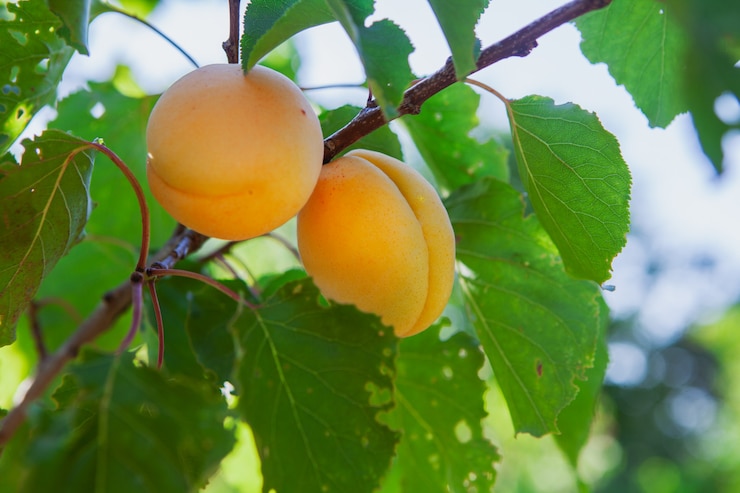Apricots are delicious and nutritious fruits that can thrive in the diverse climates of South Africa. With their sweet and tangy flavor, apricots make a delightful addition to any home garden. However, before embarking on the journey of growing apricots, it’s important to understand the specific requirements for successful cultivation. In this article, we will explore ten important things you should know before growing apricots in South Africa.
- Climate and Location: Apricot trees thrive in regions with a Mediterranean climate, characterized by warm summers and cool winters. They require a certain amount of chilling hours during winter to stimulate flowering and fruiting. Select a planting location that receives full sun exposure and provides protection from strong winds.
- Soil Requirements: Apricots prefer well-draining soil with a slightly acidic to neutral pH level. Sandy loam or loamy soil types are ideal. Prior to planting, ensure the soil is well-prepared with organic matter to improve drainage and fertility.
- Variety Selection: Choose apricot varieties that are suitable for the specific climate of your region in South Africa. Some popular varieties include Tomcot, Trevatt, and Moorpark. Consider factors such as chilling requirements, disease resistance, and taste preferences when selecting a variety.
- Pollination: Most apricot varieties require cross-pollination with another compatible apricot variety for optimal fruit set. Planting two or more different varieties within close proximity will ensure successful pollination. Be mindful of the blooming periods of different varieties to ensure overlap for pollination.
- Planting: The best time to plant apricot trees in South Africa is during the dormant period in late winter or early spring. Dig a hole wide and deep enough to accommodate the root system, ensuring proper spacing between trees. Gently spread the roots when planting and avoid burying the bud union.
- Watering: Apricot trees require regular watering, especially during dry spells and the fruit development stage. Deep watering once or twice a week is generally sufficient. However, avoid over-watering, as apricot trees are susceptible to root rot. Mulching around the base of the tree helps retain moisture and suppress weed growth.
- Pruning: Pruning is essential for maintaining the health and shape of apricot trees. It is best done in late winter or early spring before new growth begins. Remove dead, diseased, or crossing branches, and thin out the canopy to allow for proper air circulation and sunlight penetration. Prune lightly to avoid excessive tree vigor.
- Pest and Disease Management: Apricot trees are susceptible to various pests and diseases, including aphids, codling moth, and brown rot. Regular monitoring, practicing good sanitation, and applying appropriate organic pest control methods are essential for managing these issues. Consult local experts or agricultural extension services for guidance on specific pests and diseases in your area.
- Harvesting: Apricots are ready for harvest when they are fully colored and slightly soft to the touch. Harvesting time varies depending on the variety and local climate. Pick the fruits carefully to avoid damage and store them in a cool place to maintain their quality.
- Storage and Preservation: Fresh apricots have a limited shelf life and should be consumed or preserved promptly. They can be stored in the refrigerator for a few days. To preserve them for longer periods, consider methods such as canning, drying, or making jams and preserves.
Conclusion: Growing apricots in South Africa can be a rewarding experience, yielding a bountiful harvest of delicious fruits. By considering the climate requirements, choosing suitable varieties, and implementing proper care and maintenance practices, you can enjoy the sweet and juicy flavors of homegrown apricots. With patience and dedication, your apricot trees will thrive, providing you with an abundance of delectable fruits for years to come.








